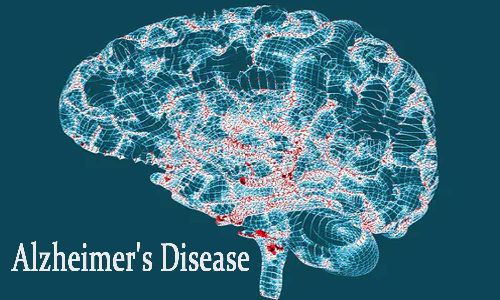
USA: In patients with early Alzheimer’s disease, lecanemab reduced amyloid markers and led to a moderately less decrease in measures of cognition and function compared to placebo at 18 months, a recent study featured in the New England Journal of Medicine has shown. Lecanemab, however, was associated with adverse events.
Previous studies have reported that accumulating insoluble and soluble aggregated amyloid-beta (Aβ) may potentiate or initiate pathologic processes in Alzheimer’s. Lecanemab is a humanized IgG1 monoclonal antibody which binds with high affinity to Aβ soluble protofibrils. It is being evaluated in people with early Alzheimer’s disease.
Against the above background, Christopher H. van Dyck, Yale School of Medicine, New Haven, CT, and colleagues conducted an 18-month, double-blind, multicenter, phase 3 trial comprising people ages 50 to 90 years with early Alzheimer’s disease (mild dementia or mild cognitive impairment due to Alzheimer’s disease) with evidence of amyloid on PET (positron-emission tomography) or by cerebrospinal fluid testing.
One thousand seven hundred ninety-five participants were assigned randomly in a ratio of 1:1 to receive intravenous lecanemab (n=898) with a dosage of 10 mg per kg of body weight every two weeks or a placebo (n=897). A change in the score on Clinical Dementia Rating–Sum of Boxes (CDR-SB with the range of 0 to 18, with higher scores suggesting more significant impairment) from baseline at 18 months (primary endpoint) was noted. At baseline, the mean CDR-SB score was approximately 3.2 in both groups.
The researchers also observed change in the amyloid burden on PET, the Alzheimer’s Disease Composite Score (ADCOMS; ranging from 0 to 1.97 with higher scores indicating more significant impairment), the Alzheimer’s Disease Assessment Scale (ADAS-cog14 ranging from 0 to 90 with higher scores indicating more substantial impairment, and score on the Alzheimer’s Disease Cooperative Study–Activities of Daily Living Scale for Mild Cognitive Impairment (ADCS-MCI-ADL) ranging from 0 to 53 with a lower score indicating more significant impairment).
The authors reported the following findings:
- At 18 months, the adjusted least-squares mean change from baseline with lecanemab was 1.21, and with placebo, it was 1.66 (difference, −0.45).
- In a substudy comprising 698 participants with lecanemab, there was a more significant decrease in brain amyloid burden than with placebo (difference, −59.1 centiloids).
- Other mean differences between the two groups in the change from baseline favoring lecanemab were as follows: for the ADCOMS, −0.050; for the ADAS-cog14 score, −1.44; and for the ADCS-MCI-ADL score, 2.0.
- Lecanemab led to infusion-related reactions in 26.4% of the patients and amyloid-related imaging abnormalities with edema or effusions in 12.6%.
“In early Alzheimer’s disease, treatment with lecanemab reduced amyloid markers and led to moderately less decline in measures of function and cognitions than placebo at 18 months but was linked with adverse events,” the authors wrote. “To determine safety and efficacy of lecanemab in early Alzheimer’s disease, longer trials are warranted.”
Reference:
The study, “Lecanemab in Early Alzheimer’s Disease,” was published in the New England Journal of Medicine.
DOI: 10.1056/NEJMoa2212948
